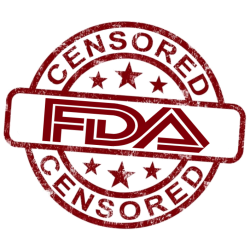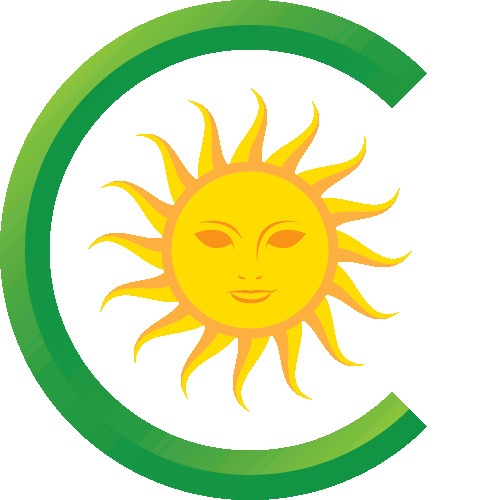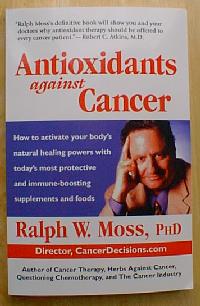 Vitamin C and Cancer
Vitamin C and Cancer
Last Updated:
Sun Jan 26 09:23:02 EST 2020

 "There was something odd about the results of the vitamin C and cancer
experiments Linus Pauling reported in the 1980s: patients lived longer
- much longer.
Those treated with vitamin C lived an average of four
times as long as control patients who did not receive vitamin C. This massive improvement was unparalleled in the history of medicine."
"There was something odd about the results of the vitamin C and cancer
experiments Linus Pauling reported in the 1980s: patients lived longer
- much longer.
Those treated with vitamin C lived an average of four
times as long as control patients who did not receive vitamin C. This massive improvement was unparalleled in the history of medicine."
In addition, the intravenous vitamin C protected normal cells from the toxic effects of radiation therapy.
Ascorbate (Vitamin C) Antioxidant Chemistry by Garry K buettner and Freya Q. Schafer
Vitamin C Revival Promising cancer therapy dismissed in '70s earns second chance
High-dose vitamin C proves safe and well-tolerated in brain and lung cancer trials Study identifies flaws in cancer cell metabolism that make high-dose vitamin C toxic to tumor cells
Case #1
In the last few weeks he has been able to improve his well-being by increasing his ascorbate intake to 130 to 150 grams per day! He has been taking oral doses every hour of 5 to 10 grams of a mixture of nine parts sodium ascorbate plus one part ascorbic acid dissolved in water. These doses are well tolerated and within "bowel tolerance" and he has had no trouble from diarrhea except just lately when he had to reduce the 150 grams a day to 130 grams.
I believe his case is a classic and a good demonstration that if sufficient ascorbate is given to fully counteract all the incident stresses, then the cancer can be controlled. If given early enough in this disease, then cancer may no longer be a problem. Up to now we just haven't realized how big these daily controlling doses have to be."
Stone adds that the man's doctor "ran some ascorbate determinations" on Joe's blood and came up with the highest blood levels I ever saw. At one point it was 35 mg%! Our so-called "normal" but scorbutic population averages 1 mg% or less, our kidney threshold is 1.4 mg%.
I would like to see a crash ascorbate program started on terminal cancer patients using doses in the ranges found to keep his cancer under control. Since these "terminals" have been abandoned by orthodox medicine, they have nothing to lose but their ill health."
Case #2
He took a level teaspoon of ascorbic acid crystals, about 4,000 mg, every half hour he was awake, day or night. His total daily intake approached 100,000 mg. Within days, he stopped coughing up the blood. If ascorbate had done nothing else, this alone would have been more than enough benefit.
But there was more good news within the week. His appetite returned, and he was now able to lie down in the bed. He reported that he was sleeping much better and was in much less pain. Within two weeks, he was able to walk around the house with a cane, and even go out into the yard. His quality of life was extraordinarily enhanced by the vitamin C. He never got diarrhea.
Stone's initial report of such benefit to a cancer patient from oral doses of ascorbate at 80 to 150 grams a day is striking; his report of such high measured blood levels of ascorbate is astounding. It is a clear and uncomfortable challenge to all physicians, dietitians, and governmental bodies that a sick human organism can in fact absorb quite a bit more than a few hundred milligrams of ascorbate daily.
In 2012, the Konno group published a paper in the Townsend Letter for Doctors and Patients that found a remarkable synergy when vitamin C and commerically available maitake mushroom D'Fraction are combined. Together, but not alone, these supplements kill ordinary malignant cancer cells in vitro.
Landmark Paper on Vitamin C and D'Fraction for Cancers.
Note: A second factor combined with vitamin C often amplifies the health generating effect. As with heart disease, where adding lysine was the miracle, conventional cancer researchers discovered that the addition of Maitake Mushroom D'Fraction to high vitamin C produces a miracle fighting cancer.
Foundation approved CONQUER is a true-liposomal vitamin C and D'Fraction dietary supplement.
Introduction
Recently, exciting research has been published that documents the ability of vitamins C, E and selenium orally to prevent most cancers, and to decrease the mortality of pancreatic cancers, stomach cancers, prostate cancers and other cancers. The Vitamin C Foundation is interested in the how and the why vitamin C may help people with cancers feel better.
Foundation's Review of the Recent Science from Around the World
In recent years, stunning science has revealed that fighting cancer is fighting two different battles. The active malignancy and the more subtle battle against these otherwise hard-to-kill cancer stem cells (CSCs). These cancer stem cells are the seeds of future cancers and new landmark research has found that optimal doses of vitamin C, and to a lessor extent vitamin B3, can destroy these CSCs.In 2001, the University of Michigan Cancer Center proclaimed that current chemotherapy targets the "wrong" cells. The Ann Arbor researchers discovered that not all cells in a tumor are equally malignant. Only tiny minorities of tumor cells are actually capable of inducing new cancers; the rest are relatively harmless. "These tumor-inducing cells have many of the properties of stem cells," said Michael F. Clarke, MD, a professor of internal medicine, who directed the study. "They make copies of themselves --a process called self-renewal -- and produce all the other kinds of cells in the original tumor."
Concise Review: Cancer Cells, Cancer Stem Cells, and Mesenchymal Stem Cells: Influence in Cancer Development
The 2017 first-ever study from India found that vitamin C, and Niacin to a lesser extent, at the proper concentrations can kill CSCs - the seeds of ordinary malignant cells. Importantly, the Indian researchers also demonstrated that too small concentrations of vitamin C (and Niacin) actually promote the proliferation of these cancer-seed cells.
Last June, Professor Michael Lisanti from the University of Salford, UK, published two studies that found vitamin C and antibiotics could be up to 100 times more effective at killing cancer stem cells (CSCs) than standard-of-care drugs. According to Lisanti, giving the antibiotic doxycycline followed by vitamin C effectively starves cancer stem cells of their fuel, resulting in their death in the lab, the researchers said.
Then last August, another research group located in the USA published their findings that injections of vitamin C could help fight blood cancers. Luisa Cimmino and Benjamin Neel at the New York University School of Medicine and their colleagues have discovered that, by injecting vitamin C, cancer growth could be prevented. Researchers halted the progression of leukemia in mice by promoting the function of a specific gene through high doses of vitamin C.
In the same month, researchers at Children's Medical Center Research Institute at UT Southwestern discovered that stem cells absorb “unusually high” levels of vitamin C, which reportedly regulate function and suppress the development of leukemia. Dr. Michalis Agathocleous, lead author of the study, said stem cells use vitamin C to regulate chemical modifications on DNA, which turn genes on and off. “When stem cells don’t receive enough vitamin C, these [DNA-regulating mechanisms] can become damaged in a way that increases stem cell function but also increases the risk of leukemia.” Thus, if humans take up more vitamin C than normal, this vitamin will regulate and stabilize stem cell function and suppress the chances of developing leukemia.
Physician Daniel Couturier commented, “Available studies indicate that vitamin C, at doses of 4 g/kg b.w., a pancreatic tumor mass reduction of more than 40% could be achieved in a xenograft animal model."
The Vitamin C Foundation White Paper for cancer doctors and patients estimates the continuous dosing necessary for CSC-lethal concentrations in the blood. The Foundation encourages oncologists to advise their patients to supplement vitamin C in oral amounts that can achieve at least a 100 micromoles/liter concentration in their blood for as long as possible. The major problem is that the kidney constantly reduces vitamin C concentrations to less than this amount steady state, e.g. 85 micromoles/liter, with a half-life of 30 minutes.
Our initial estimates are that 1 gram or less of oral vitamin C daily creates the concentrations that promote CSC proliferation , and that 4 grams creates the minimum required 100 micromole/litter concentration, at least for a little while.
Published in the journal Cell Biology International, the study investigated both low and high doses of vitamin C and Niacin on stem cells tumors of the intestine. Different dosages produced opposite effects.
Thus, it was found that when taking vitamin C to create a concentration of 5-25 micromole/L of vitamins C and B3, which is a low dosage, there is a process of active reproduction of stem cells tumors of the intestine. At high dosages (creating concentrations of 100 to 1,000 micromoles) these stem cells are destroyed.
The Vitamin C Foundation calculates that continuous oral supplemental oral intakes of vitamin C can achieve the study's reported cancer-lethal concentrations in the blood. The normal lab range for vitamin C is 0.4 mg/dl to 1.5 mg/dl, (23 to 85 μM/L). The Indian study results indicate that a 100 μM concentration (1.76 mg/dl) is the low end of the cancer-lethal range, or just above steady state. Sustaining this level requires continuous vitamin C supplementation, as long advocated by vitamin C experts Steve Hickey and Hilary Roberts, PhDs. While intravenous vitamin C can exceed the 10,000 μM by 2.5 times (e.g. 440 mg/dl or 24,983.2 μM/L ) this is apparently suboptimal, and it is difficult to keep people on constant intravenous vitamin C infusions.
The low range (5 to 25 μM) that promotes the growth of cancer stem cells equals a lab range of 0.08 to 0.44 mg/dl which is below normal and can easily be raised through regular vitamin C supplementation.
The answer to the question of what oral dosage is required is:
Note: The current government RDA for vitamin C, and the dosage recommendations currently from the Linus Pauling Institute, promote Cancer Stem Cell (CSC) proliferation that spawns malignacies. According to the findings of researchers Sen, et. al., the dosage for cancer patients needs to be much higher to avoid spawning new aggressive cancers.
The Sen study is published in the journal Cell Biology International. Note: Pauling and Robinson are vindicated! They were both right.
Facebook Video - Linus Pauling 1986 Interview: Cancer and Vitamin C
More support for the Sen et. al Vitamin C (and B3) findings (below).
The results in a cohort over 38,000 were so strong and compelling the authors stated: Healthcare professionals may promote intake of these antioxidants in healthy amounts in order to reduce the incidence of this type of malignancy"
High Dose Vitamin C, Oxidative Stress And Ordinary Malignancy
Almost all vitamin C experts now seem to agree, hydrogen peroxide produced by high levels of ascorbate (vitamin C) plays an important role.However, vitamin C is relatively weak at this job at lower dosages, so there are multiple reasons to avoid low dose vitamin C if you have cancer. Experts recommend continuous high dosages of ascorbate (vitamin C) combined with specific adjuncts (e.g. Alpha Lipoic Acid, Vitamin K3, and/or D'Fraction Maitake Mushroom.)
Most experts recommend incorporating high-dose intravenous vitamin C (IV/C) infusions to achieve the high blood concentrations necessary to kill the most malignant cells.
Expert Opinion on 14 Videos: The Case for Vitamin C Against Cancers
Talking to your Oncologist
You may be able to talk your oncologist into going along with vitamin C as an 'adjunct' (not a replacement for) conventional chemotherapy.
 Improvement
of terminal cancer patients' health-related quality of life after high
dose vitamin C administration...
No matter how effective IV/C is against tumors, the high-dose Vitamin C
therapy can become an important adjunct to standard therapies by
protecting our trillions of good cells from the adverse effects of
chemotherapy and radiation. Studies have shown that taking IV/C after
these therapies does not interfere with them and patients who take IV/C
after chemotherapy do better than those who don't get vitamin C.
Improvement
of terminal cancer patients' health-related quality of life after high
dose vitamin C administration...
No matter how effective IV/C is against tumors, the high-dose Vitamin C
therapy can become an important adjunct to standard therapies by
protecting our trillions of good cells from the adverse effects of
chemotherapy and radiation. Studies have shown that taking IV/C after
these therapies does not interfere with them and patients who take IV/C
after chemotherapy do better than those who don't get vitamin C.
Visit: Inteligent*Vitamin*C Blog on Vitamin C and Oncology
Powerpoint: Recent (2017) Vitamin C and CSC study abstracts
Ketogenic Diet
Cancer patients should restrict their sugar and carb intakes to avoid fueling cancer cell division. Cancers have increased insulin receptors and thrive on sugar. All carbohydrates reduce to simple sugars during digestion. A low-carb, low-sugar (ketogenic) diet is important to starve fast growing tumors of glucose.
Glucose, a component of most sugars, competes with vitamin C for entry into cells because these molecules are similar. This may be why the low-carb diet enhances vitamin C anti-cancer therapies.
Good Advice: Take Oral Vitamin C Too - All Day
Authors Hickey and Roberts stress that vitamin C should be taken orally 24/7 to keep the oxygen "redox" pressure on cancer tumors (i.e. not only during regular intravenous vitamin C infusions.)
Handbook on Vitamin C Therapy for Patients and Doctors by Steve Hickey and Hilary Roberts
 The new Vitamin C Foundation
sugar-free chewables (with Niacin) help with compliance, i.e. one
tasty tablet every 3 to 4 hours, and they may help reduce the
sugar/carb craving.
The new Vitamin C Foundation
sugar-free chewables (with Niacin) help with compliance, i.e. one
tasty tablet every 3 to 4 hours, and they may help reduce the
sugar/carb craving.
Cameron's chewables also contain important ingredients (e.g. cherry flavor, sorbitol and xylitol) that may have contributed to the outstanding Pauling/Cameron results in their Scottish study. Visit this forum topic on how and why new Vitamin C Foundation approved chewable vitamin C may contain Ewan Cameron's Secret Weapon against cancer.
Ralph Moss: Antioxidants Increase Chemo Potency Against Cancer
 Antioxidants Against Cancer
which clearly explains why antioxidant therapy should be offered to
every cancer patient.
Ralph Moss, a leading expert on cancer treatments,
provides an excellent evidence-based summary, easily understood by both
patients and their cancer treatment specialists,
Antioxidants Against Cancer
which clearly explains why antioxidant therapy should be offered to
every cancer patient.
Ralph Moss, a leading expert on cancer treatments,
provides an excellent evidence-based summary, easily understood by both
patients and their cancer treatment specialists,
The following tables from the Moss book illustrate that vitamin C the effectiveness of using vitamin C (and vitamin E) as an adjunct to conventional therapies.
| Agent Used | Decrease in Cancer Growth |
|---|---|
| Vitamin C | -5.0% |
| 5-FU | 38.0% |
| 5-FU + Vitamin C | 95.5% |
| X rays | 72.0% |
| X rays + Vitamin C | 98.2% |
| Bleomycin | 73.0% |
| Bleomycin + Vitamin C | 92.0% |
| Agent Used | Decrease in Cancer Growth |
|---|---|
| Vitamin E | 47% |
| Bleomycin | 46% |
| Bleomycin + Vitamin E | 71% |
| 5-FU | 37% |
| 5-FU + Vitamin E | 71% |
| Adriamycin | 58% |
| Adriamycin + Vitamin E | 88% |
| Cisplatin | 57% |
| Cisplatin + Vitamin E | 82% |
Source: Kedar Prasad, University of Colorado, as summarized in Antioxidants Against Cancer by Ralph Moss
Moss Reports and updates on the latest science of Antioxidants and Cancer by Ralph Moss
Review of the Recent Science
The study led by S.Y. Pan of Public Health Agency of Canada, Ottawa, Ontario, Canada and colleagues showed that premenopausal women who had taken zinc supplements for 10 years or longer were 54 percent less likely to develop breast cancer, compared to those who had not.
The study also showed that supplementation of multivitamin, beta-carotene, vitamin C, vitamin E and zinc for 10 or more years was associated with 26, 42, 21, 25, and 53 percent reduced risk of breast cancer , respectively, in postmenopausal women.
On the other hand, dietary antioxidants including beta-carotene, alpha-carotene, lycopene, lutein and zeaxanthin, vitamin C, vitamin E, selenium and zinc or supplementation of antioxidants for less than 10 years were not associated with reduced risk of developing breast cancer.
Study: Antioxidant Intake Significantly Decreases Pancreatic Cancer Risk by 67%
Study: Vitamins E, C Cut Prostate Cancer Risk
Vitamins C and A synergistically fight breast cancer cell growth...
 A study published in the Journal of Nutritional Biochemistry found that
administering both vitamin A and vitamin C to cultured human breast
cancer cells was more than three times as effective than the
administration of either compound alone.
A study published in the Journal of Nutritional Biochemistry found that
administering both vitamin A and vitamin C to cultured human breast
cancer cells was more than three times as effective than the
administration of either compound alone.
"This is the first time the effect of combining retinoic and ascorbic acid on breast cancer cell proliferation, differentiation, apoptosis and antioxidant-related gene expression has been studied."
The Journal of Nutritional Biochemistry
Volume 17, Issue 7, July 2006, Pages 454.462
Retinoic acid and ascorbic acid act synergistically in inhibiting human
breast cancer cell proliferation
Ki-Nam Kima,
Jae-Eun Pieb,
Jin-Hee Parka,
Yoon-Hee Parka,
Hye-Won Kima,
Meyoung-kon Kima,
Corresponding author contact information, E-mail the corresponding author.
- ABSTRACT: Pharmacologic ascorbic acid concentrations selectively kill cancer cells: Action as a pro-drug to deliver hydrogen peroxide to tissues...
- Growth suppression of malignant leukemia cell line in vitro by ascorbic acid (vitamin C) and its derivatives
- Ascorbic acid (vitamin C) improves the antineoplastic activity of doxorubicin, cisplatin, and paclitaxel in human breast carcinoma cells in vitro
- Higher plasma vitamin C levels decrease risk of gastric cancer in the European Prospective Investigation into Cancer and Nutrition ...
- Research backs theory that vitamin C shrinks tumors...
-
Cancer: Intravenous Vitamin C Effective Treatment
"The United States National Institutes of Health researchers found ascorbate killed cancer cells at concentrations that would only be achievable through intravenous infusion. Normal cells were not affected by ascorbate at any concentration. [More sepp commentary]"
- Intravenously administered vitamin C as cancer therapy: three cases...
- Annals of Internal Medicine: Vitamin C Pharmacokinetics: Implications for Oral and Intravenous Use ...
- Intravenous Ascorbate as a Tumor Cytotoxic Chemotherapeutic Agent...
- Vitamin C protects against melanoma skin cancers
- Inhibition of liver cancer cell proliferation and migration with ascorbic acid (vitamin C)...
-
Large study finds vitamin C protective of stomach cancer...
But when the researchers examined the blood levels of vitamin C they found a strong protective effect. That is: they found that those subjects with the highest level of vitamin C in their blood had a 60 percent lower risk of stomach cancer than those subjects with the lowest levels.
- Vitamin C and Stomach Cancer...
- Low vitamin C linked to stomach cancer...
- Pharmacologic ascorbic acid concentrations selectively kill cancer cells: Action as a pro-drug to deliver hydrogen peroxide to tissues ...
- Ascorbic Acid (Vitamin C) Kills Cancer Cells...
- Colds "may trigger child cancers" ...
- High antioxidant vitamin intakes reduce adverse effects of chemotherapy in children with acute lymphoblastic leukemia...
- Inhibition of liver cancer cell proliferation and migration with ascorbic acid (vitamin C)...
- Combination therapy with vitamins C plus E inhibits human prostate cancer cell growth...
- In vivo antitumor effect of ascorbic acid, lysine, proline and green tea extract on human prostate cancer ...
- Autoschizis: How vitamins C and K3 kill cancer cells...
- More on vitamin induced autoschizis for prostate cancer...
- Orthomolecular oncology review: ascorbic acid and cancer 25 years later...
Hickey/Roberts Important Cancer Book Ready for Download
Dr. Cathcart's Vitamin C and Cancer Page
Preparation of Sodium Ascorbate for IV and IM Use... Cathcart's Written Instructions for Physicians
Nobel prize winner's letter on vitamin C and cancer...
NIH (Levine's) Vitamin C/Cancer Paper Now Available - Free Download (pdf)
Even the mainstream is slowly recognizing value of vitamin C in the fight against cancer.
Animal-Based Nutrients Linked With Higher Risk Of Stomach And Esophageal Cancers Vitamin C supplements reduce stomach cancer by 40% Yale researchers also found that regular users of vitamin C supplements were at significantly lower risk of stomach cancer.
Vitamin C and Vitamin K3 cause massive cancer cell death. From Science News.
Vitamin C Foundation comments: Are high antioxidant intakes bad for your health?
Statin Cholesterol-Lowering Drugs and Cancer...
 These data coupled with an absence of reports in the clinical
literature of Ascorbic Acid sensitization strongly support the safety
of these ingredients. Note: Report states that fear of tumors is
misplaced, as effect is compared to bicarbonate of soda.
These data coupled with an absence of reports in the clinical
literature of Ascorbic Acid sensitization strongly support the safety
of these ingredients. Note: Report states that fear of tumors is
misplaced, as effect is compared to bicarbonate of soda.